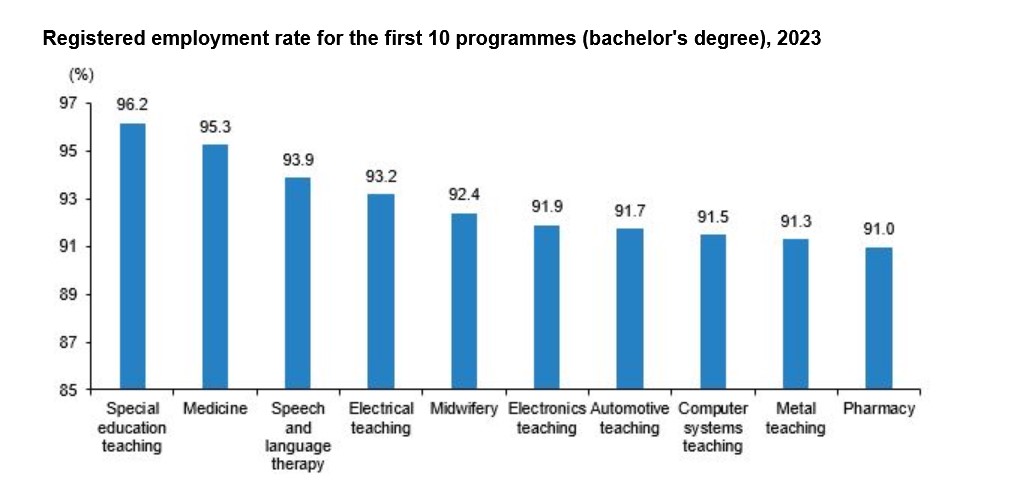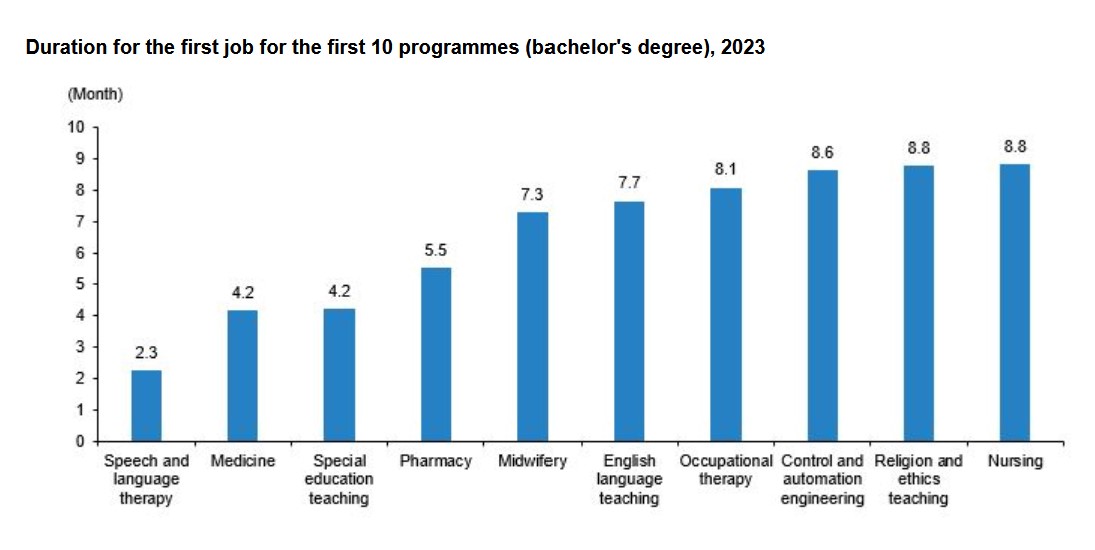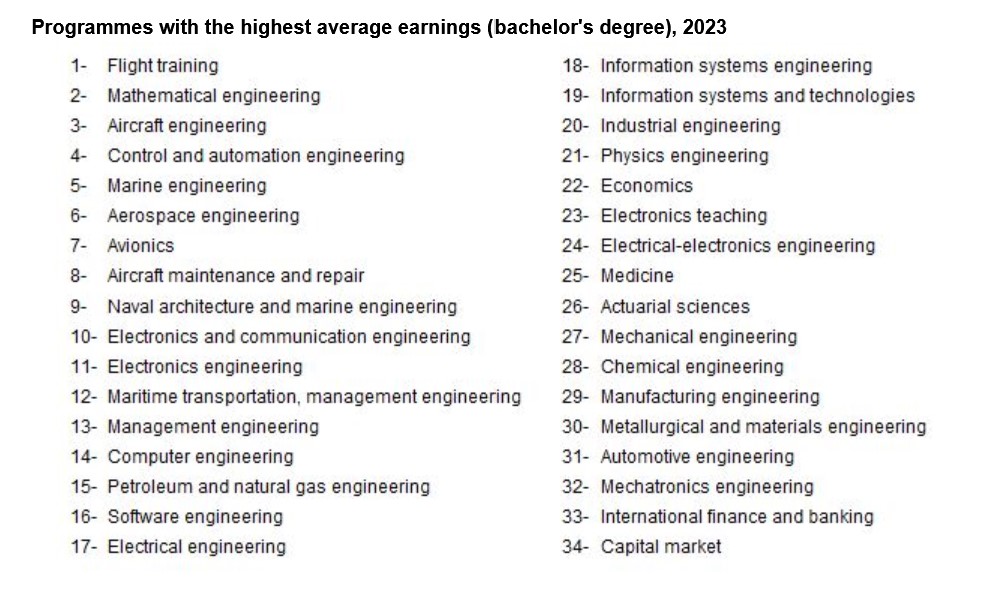[ad_1] According to the Turkish Statistical Institute (TurkStat) Higher Education Employment Indicators data; while the registered employment rate of bachelor’s graduates was 75.1 percent in 2022, this rate increased to 75.6 percent in 2023. While the registered employment rate for associate degree graduates was 67.3 percent in 2022, this rate increased to 67.7 percent in…


[ad_1]
According to the Turkish Statistical Institute (TurkStat) Higher Education Employment Indicators data; while the registered employment rate of bachelor’s graduates was 75.1 percent in 2022, this rate increased to 75.6 percent in 2023. While the registered employment rate for associate degree graduates was 67.3 percent in 2022, this rate increased to 67.7 percent in 2023.
The programmes with the highest registered employment rate at the bachelor’s degree level were; special education teaching (96.2%), medicine (95.3%), speech and language therapy (93.9%), electrical teaching (93.2%) and midwifery (92.4%).

According to the International Standard Classification of Education: Fields of Education and Training 2013 (ISCED-F 2013), the first five fields with the highest registered employment rate for bachelor’s graduates were; health and welfare (87.4%), engineering, manufacturing and construction (83.7%), education (79.8%), information and communication technologies (79.6%) and business, administration and law (74.8%).
The programmes with the highest registered employment rate at the associate degree level were police vocational training (92.1%), generation, transmission and distribution of electrical energy (88.7%), industrial die sinking (86.1%), metallurgy (85.5%), hunting and wild life (84.7%) and welding technology (84.7%).
According to the fields of education and training, the first five fields with the highest registered employment rate for associate degree graduates were; engineering, manufacturing and construction (77.3%), natural sciences, mathematics and statistics (71.7%), services (71.0%), information and communication technologies (70.4%) and agriculture, forestry, fisheries and veterinary (69.6%).
While the average duration for the first job for bachelor’s degree graduates was 15.0 months in 2022, it was 14.4 months in 2023. While average duration for the first job for associate degree graduates was 16.8 months in 2022, it was calculated as 15.9 months in 2023.
Five bachelor’s degree programmes with the shortest duration for the first job after graduation were; speech and language therapy (2.3 months), medicine (4.2 months), special education teaching (4.2 months), pharmacy (5.5 months) and midwifery (7.3 months).

Considering the bachelor’s degree graduation fields, first five education and training fields with the shortest duration for the first job was; health and welfare (8.7 months), engineering, manufacturing and construction (11.6 months), information and communication technologies (11.9 months), education (12.1 months) and services (13.5 months).
Five associate degree programmes with the shortest duration for the first job after graduation was; police vocational training (2.9 months), opticianry (9.0 months), culinary arts (10.7 months), civil aviation and cabin services (11.6 months), and pharmacy services (11.9 months).
Considering the associate degree graduation fields, first five education and training fields with the shortest duration for finding the first job was; services (13.4 months), natural sciences, mathematics and statistics (13.7 months), engineering, manufacturing and construction (14.4 months), health and welfare (15.3 months), and information and communication technologies (16.3 months).
When the earnings status of bachelor’s degree graduates was examined, five programmes with the highest average monthly earnings were; flight training, mathematical engineering, aircraft engineering, control and automation engineering and marine engineering.

When the earnings status of associate degree graduates was examined, five programmes with the highest average monthly earnings were; retailing and store management, police vocational training, aircraft technology, brand communication and generation, transmission and distribution of electrical energy.
Top five fields with the highest employment alignment for paid employed bachelor’s degree graduates were health and welfare (79.3%), business, administration and law (79.3%), engineering, manufacturing and construction (63.9%), education (62.7%), and information and communication technologies (59.4%). Lowest alignment was observed in the field of social sciences, journalism and information (19.9%).
The top five fields with the highest employment alignment for paid employed associate degree graduates were business, management, and law (65.6%), engineering, manufacturing, and construction (59.5%), services (57.8%), health and welfare (45.4%), and natural sciences, mathematics, and statistics (44.3%). The lowest alignment was observed in the field of social sciences, journalism, and information at 8.1%
Albania News Agency
[ad_2]






















Türkiye, Almanya, ve Dünya Haberleri Ekonomi,